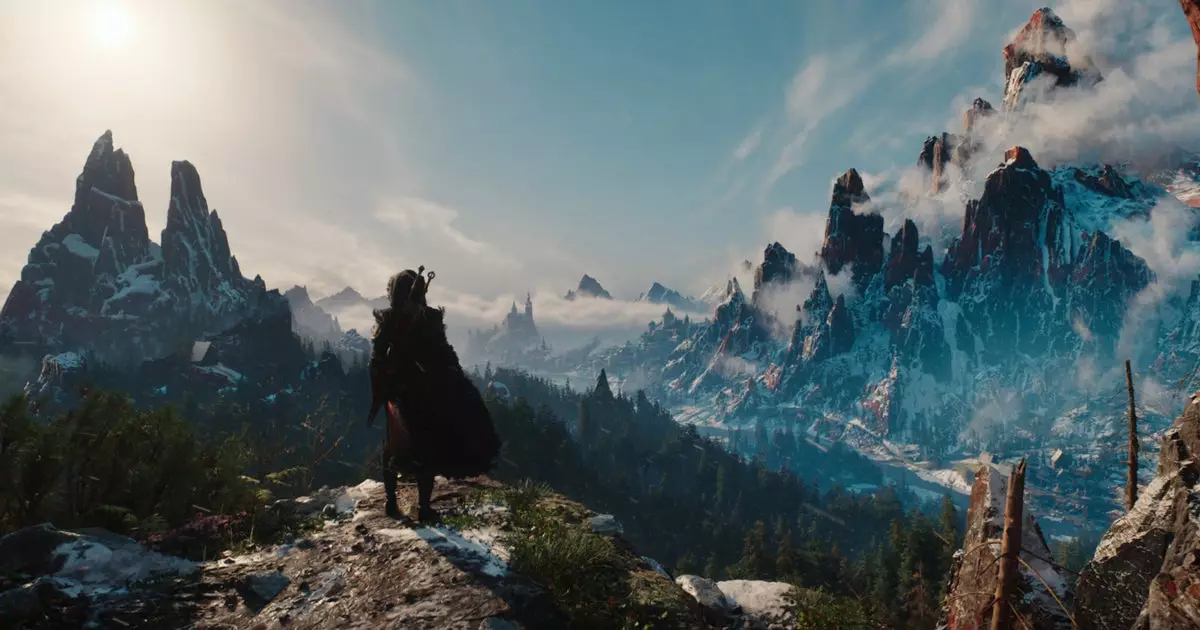As fans of The Witcher series eagerly await the release of The Witcher 4, the excitement surrounding its tech demo has sparked a frenzy of speculation among the community. Instead of merely waiting for official announcements, dedicated fans have taken to platforms like Reddit to scrutinize every aspect of the demo, uncovering tantalizing hints about potential storylines and character returns. This kind of grassroots engagement highlights not only the ardency of the fan base but also the richness of the universe that CD Projekt Red has crafted over the years.
Among the more intriguing discoveries is the reported presence of actor Richard Hawley, known for his vocal contributions to The Witcher 3. Imagining that his voice might be woven into the fabric of the new game elevates both the excitement and anticipation. Hawley’s performances as memorable characters such as Sigismund Dijkstra add depth and nostalgia to this new installment—if true. Such ties to the previous games create a seamless continuity that fans cherish, fostering a sense of familiarity while simultaneously introducing new narratives.
Voices that Echo Through the Ages
Hawley’s voice could resonate through the new game, especially when fans noted its possible appearance in a conversation between Ciri and a bearded merchant early in the tech demo. This comparison isn’t merely a whimsical observation; it provides an essential link to the lore and legacy of The Witcher series. The moment hints that the merchant may have a deeper backstory or connection to existing characters, especially when considering lore-rich cities like Koviri. This kind of speculation illuminates the satisfaction fans derive from connecting threads in the expansive Witcher universe.
Moreover, the suggestion that Hawley could reprise his role as Carduin, a mage introduced in The Witcher 2, echoes the series’ elaborate world-building. Carduin’s fate hinges on player choices, and the potential for his return in The Witcher 4 raises compelling questions about how past decisions might influence the new narrative. This intertwining of character paths manifests the brilliance of the franchise, where player agency eerily resonates across sequels. Continuing Carduin’s saga could open further narrative possibilities regarding magical politics in Koviri, which remains ripe for exploration.
Emotional Connections in Narrative Development
What makes these connections even more poignant is the emotional weight they carry for dedicated players. Characters like Dijkstra were not only voices delivered by Hawley but represent crucial narrative junctures that test players’ moral convictions and choices. By bringing back familiar voices, The Witcher 4 would not only anchor itself in its rich heritage but amplify the emotional stakes players confront as they navigate an intricate tale.
But such nostalgia also must meet the challenge of innovation. As CD Projekt Red forges ahead into uncharted territory with The Witcher 4, they are responsible for crafting new and engaging stories that honor the existing material without relying solely on past triumphs. The delicate balance between homage and new storytelling requires refinement and boldness—ingredients that fans long for in sequels.
Beyond the Hype: The Art of Speculation
Although the hunt for clues within the tech demo creates an exhilarating atmosphere, it also highlights the sometimes fraught nature of fandom speculation. There is a fine line between genuine excitement and overzealous interpretation of minor details. The discussions surrounding character voices like those of Hawley demonstrate that fans are passionate, but they can veer toward unrealistic expectations. This scenario can manifest as disappointment if the final product diverges significantly from the wild theories built around fleeting auditory artifacts.
In essence, this fervent speculation enhances the storytelling dimension of The Witcher as a franchise. Each theory, every connection drawn, adds layers to the ongoing narrative and builds a tapestry that draws even the most casual onlookers into its grasp. In a world where myth and reality blur, the community continues to create a collective excitement that may even influence the game’s development—framing it not just as a product but as a communal experience shaped by its fans.
While only time will tell what The Witcher 4 truly holds, the depth of its exploration and the richness of its narrative could emerge as both a comfort and a challenge for those familiar with the lore. Therein lies the heart of what makes The Witcher one of gaming’s enduring sagas—a world alive with possibility, driven by its characters and the passionate voices that echo through its narratives.

